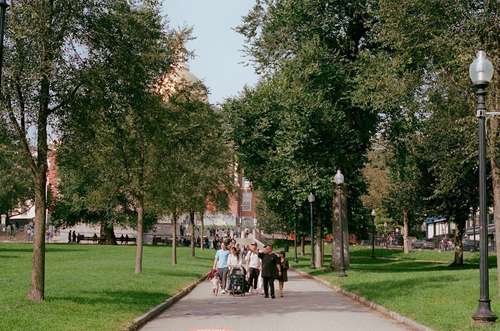Columbia University made a major announcement on Monday that's stirring up the campus conversation: the cancellation of its grand commencement ceremony. After a whirlwind of protests and upheaval, the university is shaking up its plans.
Instead of the usual one-size-fits-all celebration, Columbia is opting for a more personalized approach. Picture this: smaller, intimate ceremonies tailored to each school. These gatherings, scattered across the campus, aim to give every graduating student their moment in the spotlight, away from the South Lawn hubbub that had been the original plan until recent protests disrupted the scene.
Security concerns were cited as a major factor in this decision, according to university officials. But fear not, the spirit of celebration remains intact. In fact, the revised plan emerged from heartfelt conversations with students, ensuring their voices were heard loud and clear.
"We are determined to give our students the celebration they deserve," Columbia stated, echoing the sentiment of many eager graduates. With these smaller-scale events, students can relish crossing the stage, basking in the applause of family and friends, and soaking in the wisdom of guest speakers.

The venue for these ceremonies has shifted to the Baker Athletics Complex, ensuring a safe and respectful environment. The focus is on keeping things smooth and meaningful, with deans and school teams working tirelessly to infuse creativity into the festivities.
The recent protests that shook Columbia's campus, particularly the encampment at Hamilton Hall, have undoubtedly left their mark. University President Minouche Shafik's decision to involve law enforcement sparked controversy and led to arrests, casting a shadow over commencement preparations.
Similar scenes unfolded at other universities across the nation, raising concerns about the fate of graduation ceremonies. From Michigan to California, the echoes of protest reverberate, prompting administrations to rethink their plans.
Despite the upheaval, one thing remains clear: the resilience of the graduating class. As they prepare to embark on new journeys, they stand united in their quest for justice and their determination to make their voices heard, whether on campus or beyond. So, as May 15 approaches, let's celebrate these remarkable individuals and their achievements, marking not just an end, but a new beginning.
Navigating the Turbulence: A Look at the Current Climate in Universities
Against the backdrop of the current turbulence roiling universities across the country, it's essential to acknowledge the broader context in which these recent events at Columbia University unfold. Campuses nationwide are experiencing a resurgence of student activism, reminiscent of pivotal moments in history.
From coast to coast, students are raising their voices on a myriad of issues, from racial justice and climate change to international conflicts. Protests, sit-ins, and rallies have become commonplace, as young people mobilize to demand change and hold their institutions accountable.
The unrest at Columbia echoes similar scenes at universities like the University of Michigan and the University of Southern California, where commencement ceremonies have been disrupted by protests and controversies.
In this charged atmosphere, the cancellation of Columbia's universitywide commencement ceremony is not an isolated incident but part of a larger pattern of upheaval and dissent. It reflects a broader societal reckoning with systemic injustices and a growing recognition of the need for meaningful action.
As we grapple with these challenges, it's important to remember the rich history of activism on college campuses and the role that students have played in driving social change. In the face of uncertainty and unrest, they remain a powerful force for progress and a beacon of hope for a brighter future.




